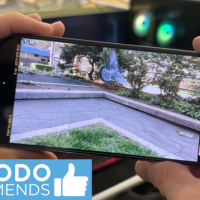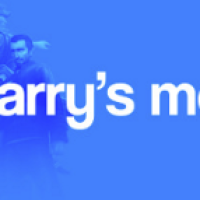[voices_in_ai_byline]
About this Episode
On Episode 109 of Voices in AI, Byron speaks with Frank Holland about the nature of intelligence and the ways in which we define, cultivate and attempt to mimic it.
Listen to this episode or read the full transcript at www.VoicesinAI.com
Transcript Excerpt
Byron Reese: This is Voices in AI brought to you by GigaOm and I’m Byron Reese. Today, we have a good guest for you. His name is Frank Holland. For the last seven months, as of this recording, he has been the CEO of Apttus, which we’ll hear more about. Before that, he had a long and accomplished tenure at Microsoft, where he was a corporate VP. He holds a BS in Operations Research and Industrial Engineering from Cornell.
Welcome to the show, Frank!
Frank Holland: Hey, it’s great to be on. Thanks a lot, Byron.
I always like to start off by just putting up signposts. What is intelligence? If you don’t like that, what is artificial about artificial intelligence?
That is exploring the esoteric, isn’t it? I think that you could safely define intelligence as the ability to reason. What makes it so different from any other kind of rule-based algorithms – or applied logic to certain scenarios, is that you’re able to not only work your way through a problem in an organized way, but do it with broad pattern-matching and the ability to recognize trending as you do it, which makes it so tenuous to be able to grapple with when you want to apply it to any sort of compute-type of environment.
That’s where I think that the state of the art is right now, as people make the transition from the philosophical question: ‘What is intelligence?’ to the idea of turning it into something that’s probably saleable.
I’m with you on that, but I always like to ask the question because I’m really wondering, is AI mimicking intelligence? Is it feigning intelligence the way artificial turf isn’t really grass, just trying to look like grass, or do you actually think it’s intelligent?
I don’t actually have a horse in this race, I don’t have a strong – I don’t even have a weak opinion for that matter, but I’m curious because to me it speaks to ‘what are the limits of the systems for building?’ Are they actually smart or are we just figuring out a kludge way to annotate intelligence and it’s going to cap-out pretty quickly?
Well, I certainly think it started there. The idea that you could build rule engines that could take logical trees and break them down into sequential processing parameters is something we’ve been doing. I remember working on those in my early days, even before, I think, the term “artificial intelligence” got coined. What we were working with was really just the very early vestiges of machine-learning.
Is it synthetic? Yeah, I think it is to a degree. It almost has to be to be able to put it into an environment where you can reliably repeat it, using the sorts of instructions we give to a compute platform. The notion though, that you can take neural nets – and other sister technologies around that and apply it to a hard, thorny problem where we may not even know how to ask the question, could be the beginnings of what it makes that truly intelligent. I think that where the human isn’t able to keep up, not just in terms of scale, that’s an easy one to understand, but in terms of knowing how to approach a problem, or like I said, knowing what question to ask, is where you could start to see some real intelligence coming out of what sorts of compute problems we’re throwing at the world right now.
Listen to this episode or read the full transcript at www.VoicesinAI.com
[voices_in_ai_link_back]
Byron explores issues around artificial intelligence and conscious computers in his new book The Fourth Age: Smart Robots, Conscious Computers, and the Future of Humanity.
Source : Voices in AI – Episode 109: A Conversation with Frank Holland














